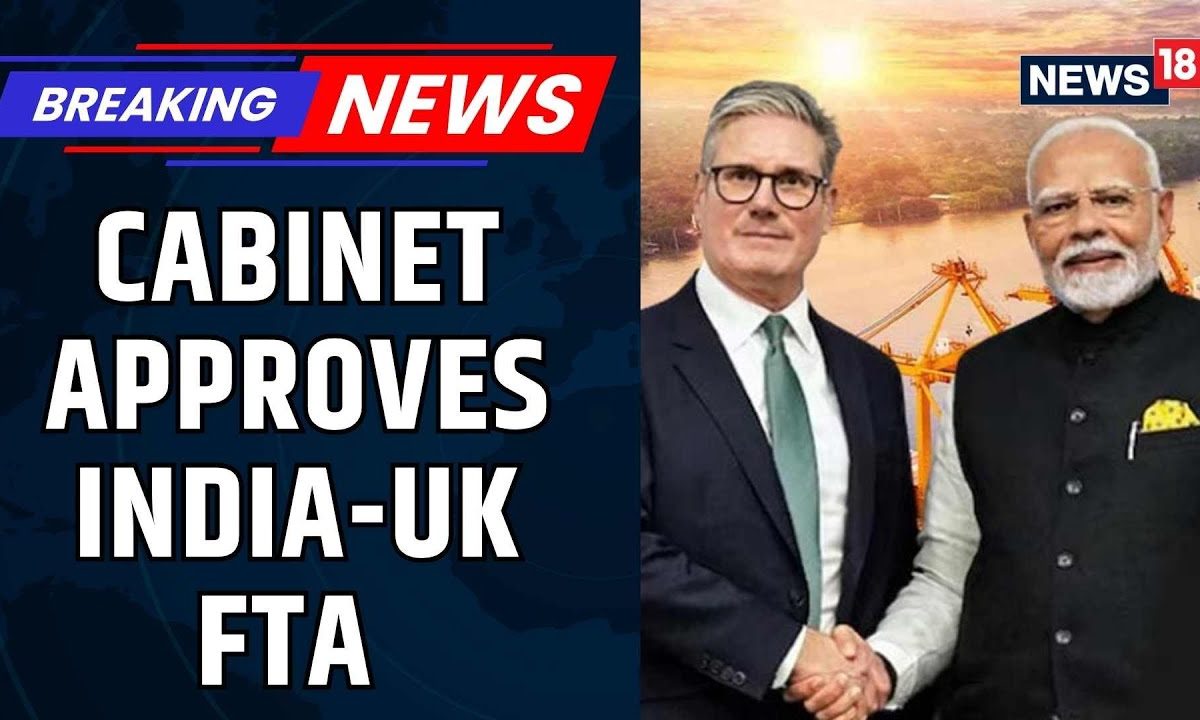

The Indian Cabinet has officially approved the Free Trade Agreement (FTA) between India and the United Kingdom. This decision paves the way for the formal signing of the agreement in London on July 24, during Prime Minister Narendra Modi's visit. Commerce and Industry Minister Piyush Goyal will accompany the Prime Minister. The FTA, officially known as the Comprehensive Economic and Trade Agreement, marks a significant step towards strengthening economic ties between the two nations.
Negotiations for the trade agreement concluded on May 6, after more than two years of discussions. The agreement aims to eliminate or significantly reduce customs duties on a wide range of products traded between the two countries. This initiative is projected to double bilateral trade to $120 billion by 2030.
Under the FTA, India is expected to benefit from a zero-duty regime on key labor-intensive exports, including textiles, leather goods, and footwear. Meanwhile, the UK will see tariff reductions on items such as Scotch whisky and premium cars. Specifically, tariffs on Scotch whisky are set to decrease from 150% to 75% immediately, with a further reduction to 40% over the next decade. For cars, India will reduce duties to 10% from 100% under a quota system that will be gradually liberalized. In return, Indian manufacturers are expected to gain access to the UK market for electric and hybrid vehicles, also under a quota system.
The agreement encompasses various aspects of trade and economic cooperation, including goods, services, innovation, government procurement, and intellectual property rights. Both countries have also finalized negotiations for the Double Contribution Convention Agreement, a social security pact designed to prevent double contributions to social security funds by Indian professionals working in Britain for a limited period.
Once signed, the FTA will require approval from the British Parliament before it can take effect. The agreement ensures comprehensive market access for goods across all sectors, covering nearly 100% of trade value. India's exports to the UK rose by 12.6% to USD 14.5 billion in 2024-25, while imports grew by 2.3% to USD 8.6 billion. The total bilateral trade between the two countries reached USD 21.34 billion in 2023-24, up from USD 20.36 billion in the previous year.
The FTA does not currently include the Carbon Border Adjustment Mechanism (CBAM), also known as the carbon tax, though discussions on this matter are expected to take place in the future.